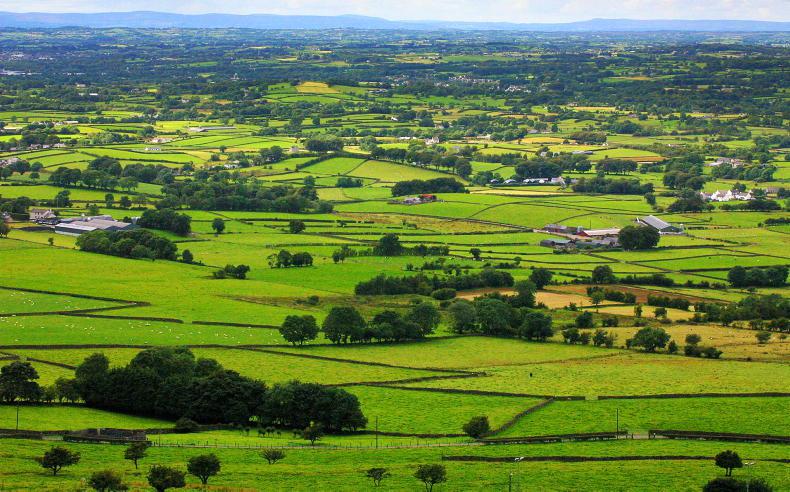UFU president David Brown and Agriculture Minister Edwin Poots were both strikingly upbeat in their outlook for the future of NI farming at a meeting on Tuesday evening.
Speaking to farmers in Hillsborough, Co Down, Brown said he was much less concerned about the impact that a potential recession could have on agriculture when compared to other parts of the economy.
“In economic terms, agriculture tends to not reach the heights that other sectors do. But equally, it tends to fair better when things are on the downturn,” the Fermanagh farmer said.
“People still need to eat and, while many other items can be foregone, food still needs to be bought,” he added.
However, the UFU president acknowledged that high input costs were hitting margins on local farms, and this was leading to changes within the industry.
He said a recent survey of NI farmers found that 30% of respondents from the beef and sheep sectors were planning to reduce livestock numbers.
“In the dairy sector, there was very little indication of a change in intent. The increase in milk prices has given some degree of confidence to continue to produce,” he said.
Brown maintained it was a “huge benefit” that agricultural policy is devolved within the UK, as this allows local policy makers to design new schemes that are tailored for NI farms.
“I would not wish upon you the Environmental Land Management Scheme that is being implemented in England,” he maintained.
That said, Brown warned that new schemes in NI will need to have an environmental focus as money from the Treasury in London will not be forthcoming otherwise.
Green opportunities
In his presentation, Agriculture Minister Edwin Poots suggested some environmental challenges that NI farmers currently face could turn into opportunities in the future.
He maintained there was scope for more anaerobic digestion (AD) plants in NI, where the likes of cattle slurry, poultry litter and silage are used to produce methane for the gas grid.
Going further, he said technologies are also being developed that separate phosphorous out of digestate from AD plants, and this could be sold as fertiliser.
“It is a wonderful opportunity. We are not quite there yet, but over the next five or ten years, much more of that type of farming could develop,” Minister Poots said.
However, the DUP politician said problems with excess ammonia emissions are not going away and would continue to impact planning applications for agricultural buildings in most parts of NI.
“Ammonia is the single biggest thing that will inhibit further food production in NI,” he said.






 This is a subscriber-only article
This is a subscriber-only article











SHARING OPTIONS: